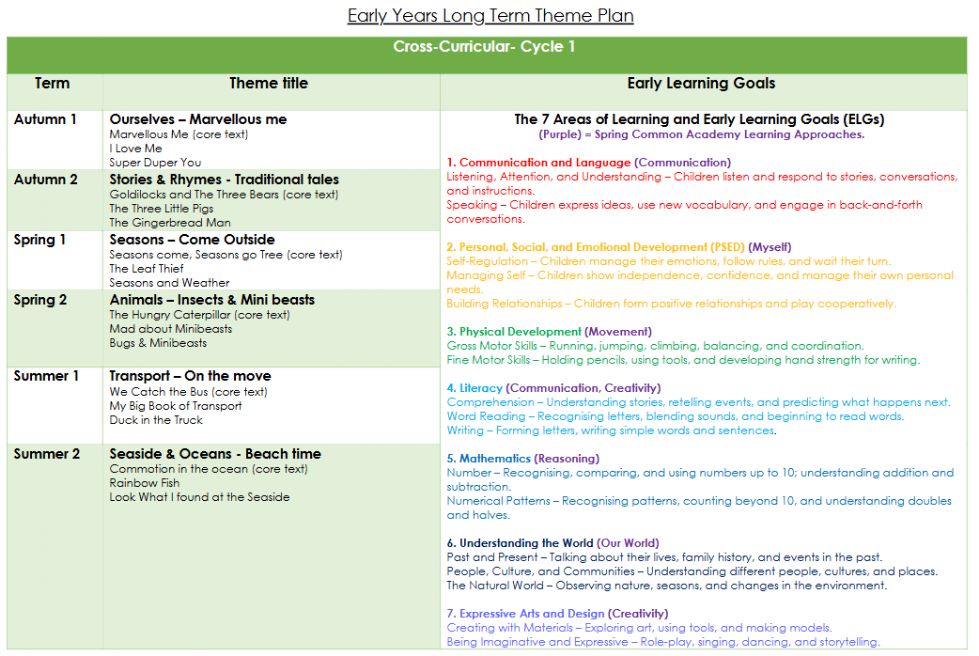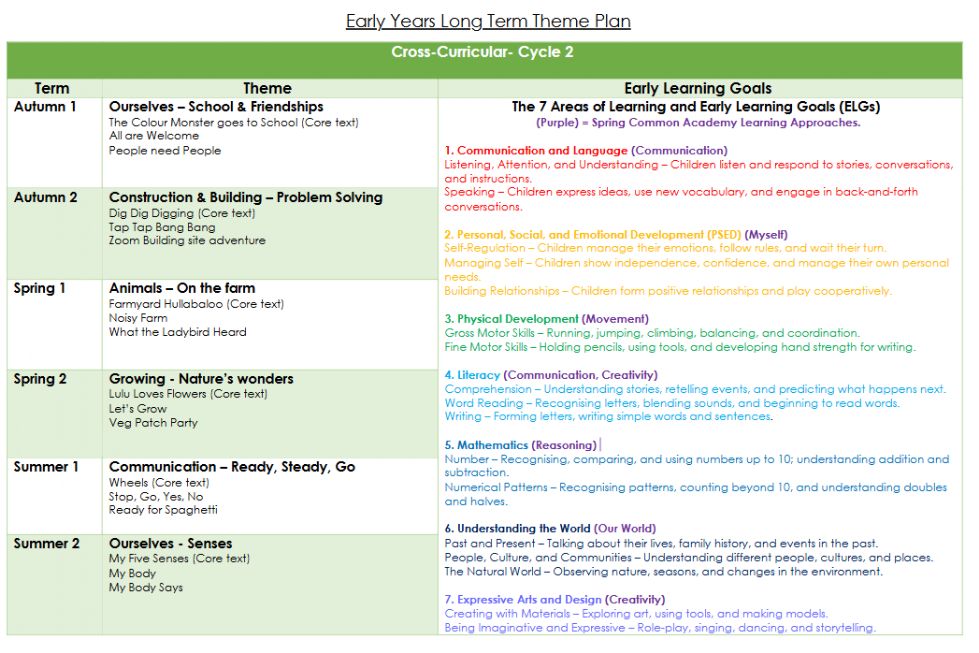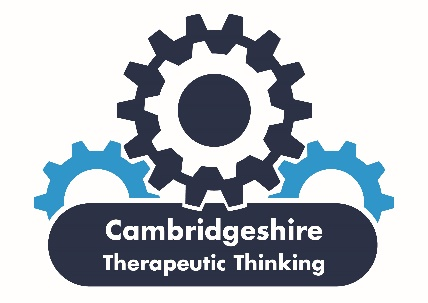Early Years
Foundation Stage Provision:
Curriculum Statement of Intent
Our Intent:
We provide high-quality learning experiences based on the Early Years Foundation, differentiated to meet the needs of each child. A total communication approach, combined with structure and routine alongside play opportunities provide the vehicle for children to learn in a safe and happy environment. This forms the foundation of their learning journey, and the skills developed within this provision prepare children for their next stage.
The curriculum covers the seven areas of learning:
Communication and Language, Physical Development, Literacy, Maths, Understanding of the World, Expressive Arts and Design, Personal, Social and Emotional Development.
- With the ability to communicate with intent through the method most appropriate for them
- Having begun to develop independence in life and learning skills such as personal care and exploration
- With a desire to learn, having experienced an exciting and engaging start to school life, and
- With a sense of security and belonging in school based in respectful and positive relationships
Our Implementation:
We provide:
A safe, nurturing and enabling environment in which all learners can access a range of learning opportunities linked to the seven areas of learning.
Learners with opportunities to develop and embed learning skills.
Learners with opportunities to explore their learning environment with confidence and independence.
Support for children to foster a love of learning.
A range of experiences in which all children can develop independence.
Our Impact:
There are many skills, traits, positive behaviours, and activities we facilitate and nurture within the provision. We believe that all of them grow from the prioritisation of:
- Communication: communication opportunities are embedded throughout practice, with adults modelling the use of communication methods as part of a Total Communication approach,
- Independence: all learners are encouraged to be as independent as possible in all areas and at every opportunity,
- Curiosity: all learners are offered a variety of opportunities to explore and investigate activities in their own way,
- Individuality: all learners are encouraged to be their own unique selves with difference and individuality celebrated, supporting adults recognise and use their knowledge of what makes each child unique to best support them,
- Play: activities are planned as “invitations to play” so as to encourage and enable children to learn through play,
- Child-led learning: supporting adults follow the lead of the learners in play, joining them in their play and using professional knowledge to offer opportunities to extend learning and skills within those activities.
We Acknowledge:
The approach within our Foundation Stage Provision is based on a set of core values and acknowledgements that underpin our practice and unite our team in a shared understanding and purpose:
- All children are already learners.
- All children have a right to autonomy and independence.
- All children need access to exciting, engaging, and enabling environments.
- Our role is to facilitate and guide learning.
- Our responsibility is to be flexible, to adapt and meet needs.
- Our duty is to safeguard all children whilst encouraging bravery and resilience.
- Our privilege is to make it fun and learn alongside
What will your child be learning each day?
Our framework covers the education and care of all children in Early Years provision, including children with special educational needs and disabilities.


Children in the EYFS learn by playing and exploring, being active, creative and modelling behaviour. We also encourage critical thinking which takes place both indoors and outside.
Our curriculum is tailored to meet the needs of each individual child and follows Development Matters.
Lots of learning takes place, including...
TACTILE EXPLORATION
HYDROTHERAPY
SENSORY EXPLORATION
ATTENTION AUTISM
EXPRESSIVE ARTS & DESIGN
OUTDOOR LEARNING
FOREST SCHOOL
COMMUNICATION
LITERACY
MATHS
GROSS MOTOR DEVELOPMENT
FINE MOTOR SKILLS







